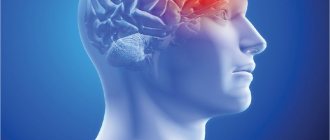A person spends a third of his life sleeping, which means it is extremely important for health. What is its significance?
For decades, psychologists and neurologists have been studying sleep and its impact on well-being and performance.
Nowadays, due to the fast pace of life, stress and hard work, the problem of lack of sleep is especially acute. After reading this article, you will learn the secrets of perfect sleep and awakening.
Sleep phases
Scientists have identified two phases, each of which has certain characteristics:
- Fast. Its duration is 15-20 minutes. The REM sleep phase is characterized by increased heart rate, accelerated movements of the eyeballs, activation of the central nervous system, increased body pressure and temperature, as well as the presence of dreams.
- Slow. It lasts about 1.5 hours and occurs in 4 stages. During this phase, muscles relax, blood pressure decreases, breathing becomes rarer and deeper, and eye movements stop. During the period of slow-wave sleep, a person does not dream and restores vitality.
The phases alternate one after another and normally last 4-5 cycles.
Is the norm the same for everyone?
Most often, sleep standards are developed taking into account the age characteristics of patients. However, this is not the only basis for variability, both between individuals and within each individual from night to night.
| Factors influencing variability in sleep standards | |
| Between people | Individual |
|
|
Importance for the body
Healthy sleep is the key to vigor, good physical condition, health and energy. At this time, tissue regeneration and the production of hormones necessary for normal functioning are activated.
Lack of sleep negatively affects the functioning of the entire body, and especially the functioning of the brain. Chronic lack of sleep can lead to the following consequences:
- Memory impairment and decreased attention. If you notice that it is becoming more difficult for you to concentrate on daily tasks, then this is a symptom of lack of sleep.
- Irritability and depressed emotional state.
- Decreased immunity. During a full night's sleep, cytokines are actively produced - protein compounds necessary to fight infectious and inflammatory processes.
- Premature aging, deterioration of skin and hair.
- Increased risk of obesity and cardiovascular diseases (arterial hypertension, coronary artery disease, atherosclerosis).
REM sleep
REM sleep is classified as the fifth stage of sleep. At this time, the state of the sleeper is as active as possible. But, despite this, his muscles are paralyzed and the person is in one position. The subconscious mind works well enough that you can remember all your dreams.
If you wake up a sleeper during the fast phase, he will be able to tell all his dreams in the most colorful and vivid detail.
At the fourth stage, it is quite difficult to wake up on your own. If you try to wake a sleeping person, you will need more effort. Some experts note that a sharp transition from such a period to wakefulness can negatively affect the psyche. REM sleep takes about 60 minutes.
Adequate sleep is essential for all people, because it helps maintain strong nerves, high immunity, and even an optimistic outlook on the world around us.
What not to do before bed - Craig Ballangtyne's formula
A popular American lifestyle advocate and fitness trainer named Craig Ballantyne created the ideal sleep form - “10-3-2-1-0”.
Each number carries a specific meaning, namely, it suggests limiting a number of actions for a certain period of time (in hours) before going to bed:
- 10 – elimination of caffeine. Therefore, it is advisable to drink drinks containing it (tea, coffee, energy drinks) only in the first half of the day.
- 3 – Avoid late meals. If you eat shortly before rest, the body will be busy digesting food, which means the process of falling asleep will become more difficult. You should also avoid alcohol, which excites the nervous system and negatively affects sleep.
- 2 – finish the job. The body will gradually return to normal, calm down, and the emotional state will stabilize.
- 1 – turn off all electronic devices. Bright pictures on the screen and loud sounds excite the nervous system and make it difficult to fall asleep.
- The last digit – 0 – is the number of times the alarm can be set in the morning. Craig is convinced that rising at the first signal is the most correct decision.
Sacrificing sleep for the sake of anything is a stupid idea.
Phrase from the book “Just Space”
A comfortable bed, a clear conscience and the absence of the Internet contribute to sound, healthy sleep. By overcoming the temptation to complete important tasks, finish watching a movie, or finish reading an article, you will give yourself priceless moments of relaxation. There will be a new day for business! It will begin with a surge of energy and positivity, provided that you have had enough rest to recuperate.
Why sleep is so important
Our wise ancestors said: it is better to undereat than not sleep. This postulate has been confirmed by scientific research in different countries of the world. The main conclusion that scientists came to is this: a person’s life expectancy depends on the duration of sleep.
Chronic lack of sleep has a negative effect on the body and contributes to the development of serious diseases:
- weakening of the functions of the cardiovascular system;
- deterioration of brain function - the emergence of a tendency towards dementia, poor mood and performance;
- risk of developing type 2 diabetes mellitus;
- the appearance of excess weight;
- decreased immunity, the body's resistance to colds and viral diseases. If a prophylactic vaccination was given, its effectiveness decreases.
Each of these phenomena can reduce the quality of life and lead to serious health problems.
Deep sleep concept
Human sleep is a cyclical process; during a night's rest, two phases alternate. They are conventionally called slow and fast. The duration of the slow-wave sleep phase of an adult lasts 1.5-2 hours. This is followed by a period of REM sleep, which lasts 5-10 minutes. During the night, 4-5 cycles change. The closer a person is to awakening, the shorter the slow-wave sleep phase becomes and the longer the fast sleep phase.
It turns out that with 8 hours of sleep, the duration of slow-wave sleep is 6.5 hours. In the structure of sleep, it is the slow phase that ensures deep sleep. It consists of 4 stages:
- Light sleep, falling asleep, dozing - a borderline state between reality and sleep. A person’s muscles relax, his consciousness becomes confused, you can talk to him, but do not count on complete adequacy.
- Falling asleep, falling asleep - sensitive, capable of being interrupted by the slightest external influence. But gradually the heart slows down, the body temperature decreases, and consciousness turns off.
- Deepening sleep. Doctors call this stage delta sleep.
- Immersion in the stage of slow delta sleep, in the mode of minimal energy consumption. The muscles of the body are completely relaxed, the pulse and breathing rhythm are slowed down, the brain is disconnected from the outside world. Dreams come to a deeply sleeping person. It is difficult to wake him up, and if he succeeds, the one who wakes up will be disoriented and “broken.”
The deep sleep phase is extremely important, since during this period processes take place for a person to fully rest:
- the human body relaxes due to a decrease in the activity of the sympathetic nervous system;
- restoration processes are actively underway;
- slow down metabolic processes;
- pulse becomes rare;
- anabolic hormones are produced - growth hormone and testosterone;
- The production of stress hormones – adrenaline, cortisol, etc. – decreases.
If slow-wave sleep is necessary for a person to fully function the body, then the REM sleep phase restores mental functions. Therefore, sound productive sleep is considered a universal cure for any disease.
How much sleep does a person need to get enough sleep?
The number of hours of sleep at night depends on the person's age. Moreover, lack of sleep, which is fraught with weakness, fatigue, and drowsiness, is no less dangerous than oversleeping. People who sleep long hours are more likely to suffer from cardiovascular diseases. The inexorable statistics are as follows: 12% of people who sleep less than 6 hours a day may die prematurely; among those who sleep for more than 9 hours, the risk of leaving before their due date reaches 30%!
The optimal option for an adult aged 25 to 65 years is considered to be a sleep duration of 7-9 hours. The individual characteristics of the body will suggest the most correct number, but within these two hours.
For other age categories the picture is as follows:
- babies under 3 months should sleep up to 17 hours a day;
- infants up to one year - 12 - 15 hours;
- small children under 2 years of age require 12–14 hours of sleep;
- preschool children 3–5 years old need 10–13 hours to sleep;
- Primary school students under 13 years of age need 9–11 hours for proper rest;
- teenagers 14–17 years old need 8–10 hours of sleep;
- boys and girls aged 18–25 years, like adults, need 7–9 hours of sleep;
- The group of elderly people over 65 years old should get 7 – 8 hours of rest every night.
In total, we spend about a third of our lives sleeping!
Rules for healthy sleep
In order to use your sleep hours productively and effectively, it is enough to follow simple rules, and even better, make them a norm of life - a good habit that preserves beauty, health and stimulation of life.
- Go to bed on a different day than you plan to wake up. Ideally, for an adult, the time is determined from 22 to 23 hours. The developed reflex of going to bed at the same time helps you fall asleep quickly and easily.
- On weekends, you can sleep longer, but no more than 1-2 hours; you won’t be able to sleep off “in reserve.” You will spend this time falling asleep for a long time at night.
- Only in complete darkness at night is melatonin produced, a hormone that helps restore the body. Don't use night lights, but thick curtains to block out moonlight and street lamps will be very helpful.
- Avoid late dinners, let 2-3 hours pass after the meal so that the process of digesting food is completed and nothing distracts you from sleep.
- Fresh air acts like a sleeping pill, so ventilate the room before going to bed.
- The air temperature in the bedroom should not be higher than 18-20°C; if it is too cool, cover up warmer or put on pajamas.
- Create an individual bedtime ritual. His program should not contain exciting moments in the form of watching a “nightmare” on TV or reading a news feed on a tablet. Flip through your favorite book, talk on the phone with a loved one, chat with your children or pets.
- Choose the optimal mattress, pillow, blanket for yourself.
- Replace your old bed with a new modern model.
- If you sleep on a sleeper sofa or chair, invest in a quality topper.
Psychologists do not recommend installing a TV in the bedroom. Consider this tip! A good habit before bed will be a cup of herbal soothing tea, a glass of warm milk with a teaspoon of honey, and a relaxing bath.
Causes of insomnia
Sleep disorders cause great damage to the body, so it is important to identify the cause of insomnia as early as possible and eliminate it. The most dangerous is considered to be prolonged insomnia, lasting more than 3 months. It can be provoked by a complex of reasons and this situation cannot be avoided without the help of specialists.
Doctors call the main provocateurs of sleep disturbances psychosocial tension, depressive states, active brain activity, non-compliance with sleep and wakefulness, thoughtless intake of stimulants (coffee, alcohol, drugs).
At risk of developing insomnia are the elderly, patients suffering from endocrine, infectious and neurological diseases. It is not always in a person’s power to eliminate the somatic causes of disturbances in the most important physiological process, but by observing sleep hygiene, insomnia can be alleviated.
Is it good to sleep during the day?
For a small person, daytime naps are a must. For a big person, taking a nap during the day is not forbidden. People who have the opportunity to rest in the middle of the day have improved memory and increased concentration. A nap will restore strength, reduce the likelihood of depression, cardiovascular problems and will not cause insomnia.
But you shouldn’t get carried away; long naps are not beneficial. It disrupts the rhythm of life, the functioning of the endocrine system and leads to insomnia at night. Rest during the day should be:
- no longer than 20-30 minutes in the interval from 13 to 15 hours of the day;
- on a comfortable sleeping place (sofa, sofa, armchair);
- without loud sounds, bright lights and other irritating factors.
Experienced daytime nappers recommend drinking a cup of coffee or tea before resting; the drink will take effect within 20 minutes and will make it easier to wake up. After a day's rest, a short warm-up for the muscles is useful.
How to learn to wake up early
For early risers, this issue is irrelevant; they wake up easily and do not experience the torment of prolonged waking up. There are “pigeon” people for whom getting up early is not a difficult task either. Night owls really suffer from waking up early. Some useful tips for them:
- go to bed not too late and not after a hearty dinner with a tablet;
- wake up at the first sound of the alarm clock, do not put off getting up for another 5 minutes;
- turn on invigorating music and as much light as possible;
- drink a glass of water;
- do pleasant, easy gymnastics to rhythmic music;
- wash your face with cool water, if you can, use a contrast shower;
- Charge your body with energy with a hearty breakfast!
Everyone who decides to change the rhythm of life is convinced of the benefits of getting up early. Early risers have a better chance of receiving a pleasant surprise from fate.
A sound sleep restores the energy spent during the day. As the best cosmetologist, he smooths out wrinkles, removes traces of daytime fatigue from the face, brings rest to the muscles and replenishes energy. They say that the stars of the night are holes in the floor of Heaven. Their rays bring streams of Universal wisdom to a sleeping person, so at night we become kinder and brighter. Hours of sleep are priceless!
Signs of lack of sleep
The best way to tell if you're getting enough sleep at night is to take stock of your condition during the day. Although people who are used to constantly “saving money” on their vacation may no longer remember what it’s like to truly be awake, to be as concentrated as possible. But there are certain signs that a person is not getting enough sleep.
You may be sleep deprived if:
- need an alarm clock to wake up on time;
- you can reset the alarm clock for a few more minutes after the ringing;
- difficulty waking up and getting out of bed;
- you feel sluggish during the day;
- you can switch off in a meeting, in classes or in an empty office;
- feel drowsy while driving and after eating;
- need a nap during the day, at least for a short time;
- fall asleep quickly while watching TV;
- on weekends you can sleep much longer than on weekdays;
- fall asleep within 5 minutes of getting into bed.
How to fall into deep sleep and wake up rested
You can and should increase the time of the deep phase by following the following recommendations:
- Go to bed and wake up at the same time.
- A few hours before a night's rest, the body should receive a load. In a state of fatigue, a person is more likely to fall asleep, but the body must be tired, as opposed to excited.
- If you have become a habit of watching movies before going to bed at night, you should not choose thrillers and horrors. Calm music also greatly helps in timely immersion in a sleepy state.
- Avoid overeating, drinking coffee, alcohol, and drinks that will increase energy. It is not recommended to eat chocolate or pastries before a night's rest. It is also undesirable to eat fruits, since fiber takes a long time to digest.
- More than 2 hours should pass from the last meal to falling asleep. Otherwise, the stomach will digest food, which will not allow a person to get a good night's sleep.
- It is necessary to consciously make the choice of bed and underwear, which should be made from natural fabrics. It is especially important to choose the right pillow, paying attention to its size, filling, and density.
- The room should be well ventilated.
Extraneous sounds that interfere with normal rest and irritating light should be excluded.
Meditation
Some disorders may be triggered by factors that require treatment with medications, but do not rush to take advertised pills. Meditation before a night's rest helps a person find peace, sets him up for relaxation and inner silence.
During relaxation, a person breathes deeply and measuredly, which helps saturate the body with oxygen. Meditation allows a person to wake up in the morning full of strength and health. Recently, to normalize falling asleep through meditation, Nadezhda Loskutova’s relaxation technique is often used.
No ads 3
Massage
A safe method of treating sleep disorders is massage. You can learn to massage your feet to normalize sleep yourself. Reflex massage has no contraindications. The use of Chinese gymnastics for insomnia, including massage of the abdomen, head, neck, and ears, is effective.
Massage promotes relaxation and deep sleep
Hypnotherapy
If all the doctor’s recommendations for improving sound sleep have been exhausted, and you don’t want to take pills, you should try to get rid of the problem with hypnotherapy. During a hypnosis session, the doctor instructs the patient to remain in a state of healthy sleep throughout the night. Many people use audio recordings of psychotherapist Andrei Rakitsky to plunge into a deep phase.
It should be noted that distance therapy should be carried out under the supervision of a physician.











